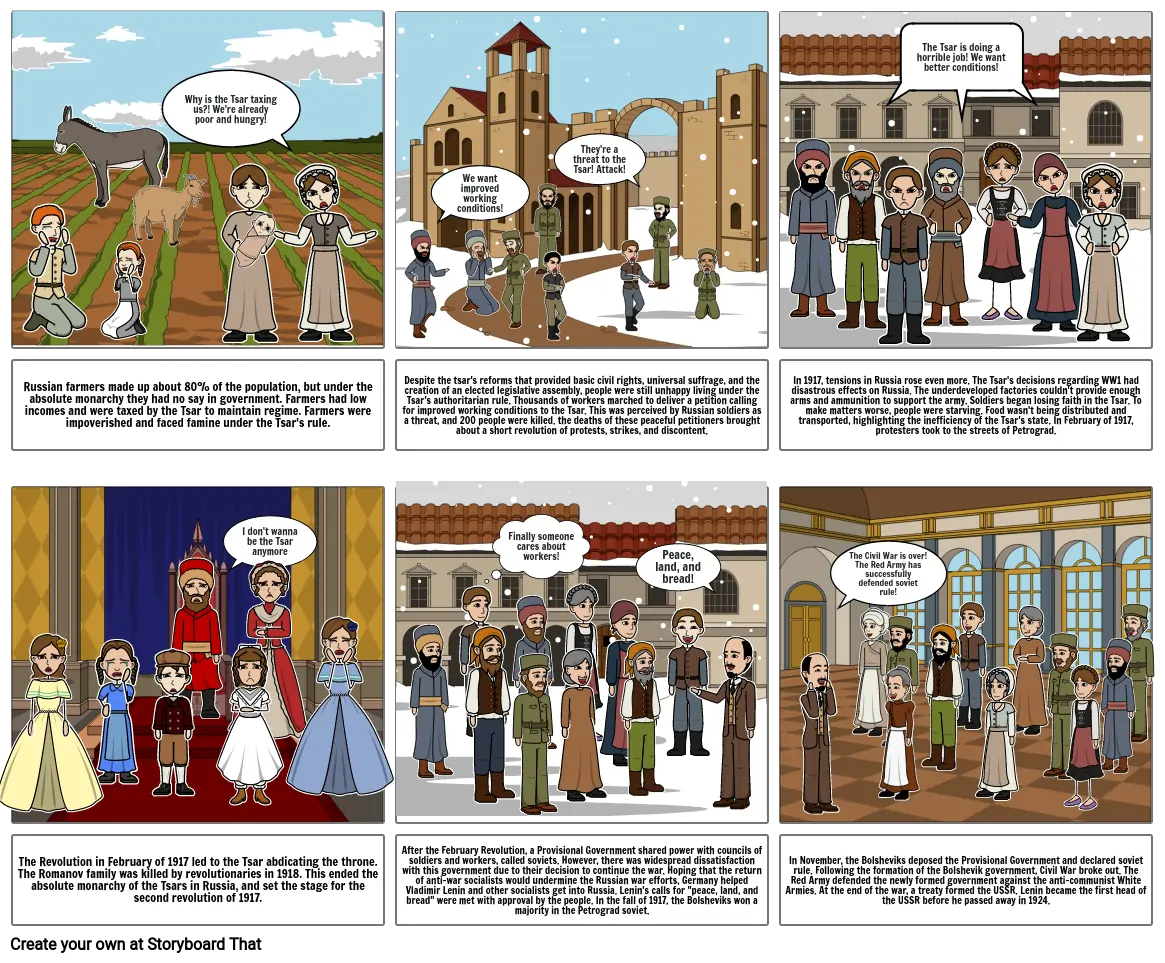Unknown Story

Storyboard Tekst
- Why is the Tsar taxing us?! We're already poor and hungry!
- We want improved working conditions!
- They're a threat to the Tsar! Attack!
- The Tsar is doing a horrible job! We want better conditions!
- Russian farmers made up about 80% of the population, but under the absolute monarchy they had no say in government. Farmers had low incomes and were taxed by the Tsar to maintain regime. Farmers were impoverished and faced famine under the Tsar's rule.
- I don't wanna be the Tsar anymore
- Despite the tsar's reforms that provided basic civil rights, universal suffrage, and the creation of an elected legislative assembly, people were still unhappy living under the Tsar's authoritarian rule. Thousands of workers marched to deliver a petition calling for improved working conditions to the Tsar. This was perceived by Russian soldiers as a threat, and 200 people were killed. the deaths of these peaceful petitioners brought about a short revolution of protests, strikes, and discontent.
- Finally someone cares about workers!
- Peace, land, and bread!
- In 1917, tensions in Russia rose even more. The Tsar's decisions regarding WW1 had disastrous effects on Russia. The underdeveloped factories couldn't provide enough arms and ammunition to support the army. Soldiers began losing faith in the Tsar. To make matters worse, people were starving. Food wasn't being distributed and transported, highlighting the inefficiency of the Tsar's state. In February of 1917, protesters took to the streets of Petrograd.
- The Civil War is over! The Red Army has successfully defended soviet rule!
- The Revolution in February of 1917 led to the Tsar abdicating the throne. The Romanov family was killed by revolutionaries in 1918. This ended the absolute monarchy of the Tsars in Russia, and set the stage for the second revolution of 1917.
- After the February Revolution, a Provisional Government shared power with councils of soldiers and workers, called soviets. However, there was widespread dissatisfaction with this government due to their decision to continue the war. Hoping that the return of anti-war socialists would undermine the Russian war efforts, Germany helped Vladimir Lenin and other socialists get into Russia. Lenin's calls for "peace, land, and bread" were met with approval by the people. In the fall of 1917, the Bolsheviks won a majority in the Petrograd soviet.
- In November, the Bolsheviks deposed the Provisional Government and declared soviet rule. Following the formation of the Bolshevik government, Civil War broke out. The Red Army defended the newly formed government against the anti-communist White Armies. At the end of the war, a treaty formed the USSR. Lenin became the first head of the USSR before he passed away in 1924.
Over 30 millioner Storyboards oprettet

